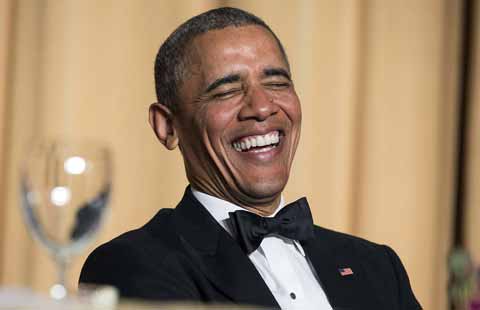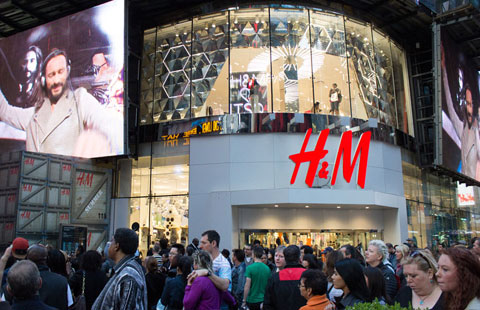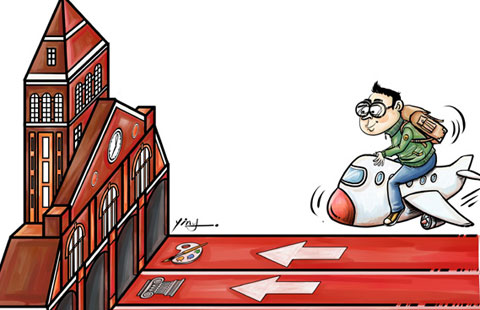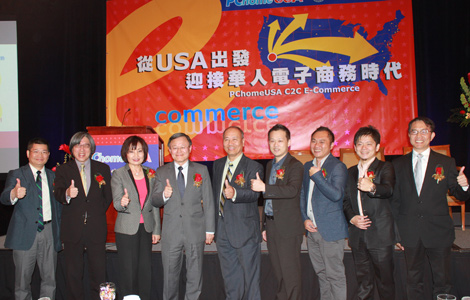India's smarter-shopping Phenom
Updated: 2014-05-05 08:19
By Emanuel John in Kolkata For China Daily (China Daily)
|
||||||||
Co-founder of online retailer Flipkart picked the right moment
'The vision was always to be the Amazon of India."
So says Sachin Bansal, CEO and cofounder of Flipkart, an Indian e-commerce platform that has rapidly become one of Asia's great success stories.
Jack Ma, founder of China's Alibaba, is, unsurprisingly, also a major inspiration for the young entrepreneur, who says that there are "a lot of things to learn from Chinese Internet companies".
In just a few years, Bansal's self-proclaimed "obsession with satisfaction" and belief that the "customer is god" have taken the startup from modest beginnings to India's largest online retailer.
For the 37-year-old co-founder and CEO of Flipkart, Bansal's story owes everything to risk taking, innovative thinking and acting fast on market potential.
Flipkart, which boasts a catalogue of about 10 million books and also sells electronics, music, movies, computers and peripherals, is "primarily a technology company powering India's leading e-commerce marketplace", Bansal says.
E-commerce in India is "witnessing a boom" like never before, he says. Last year, the industry is estimated to have grown a staggering 88 percent, to $16 billion. "What began as a promising industry five to six years back is finally beginning to display the potential we always knew it had."
In early 2011, when Bansal and Flipkart co-founder Binny Bansal (not related) predicted their company will hit $1 billion in gross merchandise volume by 2015, many believed they had set their sights too high.
But the company has already hit that target. "That means that Flipkart has grown 100 percent in the past three years," Sachin Bansal says. "This growth mirrors the kind of scale the industry as a whole has been witnessing."
The Bansals, both from the northern Indian city of Chandigarh, met while studying computer science at the Indian Institute of Technology Delhi.
Upon graduating in 2005, neither was interested in finding work abroad, unlike many of their peers. Bansal wanted to stay in India, and was determined to make a living from online work.
A year later, their paths would cross again while working for Amazon in India, where they specialized in building web services like Amazon S3, an online storage system used by many startups in the United States.
Recognizing the huge potential for e-commerce in India, both knew the time was right to try to tap into the market.
In September 2007, Flipkart began in a two-room apartment in Bengaluru, the capital of India's southern state of Karnataka.
Raising capital from investors "wasn't easy" to begin with, Bansal confesses. "From convincing our family and friends about the idea, to getting publishers to work with us - everything took time Everything depended on word-of-mouth."
In the beginning, most attempts at seeking venture capital were rejected. "We had to work doubly hard on our proof of concept, showcase a proper business plan and the results we had been getting before they started taking us seriously and we landed our first funding of $1 million," he says.
But when the company began to take off, and turnover increased from 300,000 rupees ($5,000) from 2007 to 2008 to 750 million rupees in 2010-11, there was every reason for detractors to sit up and take note.
Last year, Flipkart raised $360 million alone in funding from investors - the largest by any Indian Internet company.
The secret to the company's success lies in the Bansals' plan to create a new shopping experience for Indian customers.
"Our earlier idea had been to build a comparison site for shopping portals," Sachin Bansal says. "Only when we realized that there is a dearth of good online shopping platforms in India did we start thinking of Flipkart."
He took note of how Chinese Internet companies operate, citing Alibaba's Ma as an influence "because of the way he competed with international competition and also built the Alibaba Group - not just as an e-commerce company, but as an entire Internet ecosystem".
Recognizing that India, much like China, is primarily a cash-based economy, Bansal decided that Flipkart would use this to its advantage. "So looking at e-commerce models in China, (we) put in place a cash-on-delivery system," he says.
More than half of Flipkart's orders now operate on a cash-on-delivery basis, with many books sold at 15 to 35 percent cheaper than the cover price. This is distinctly different from how Amazon operates.
Ensuring the website was slick and fast was another major factor, with a user-friendly payment delivery system in place. "Everything we have done - the services we have launched, the technology we use, the supply chain network we have built up - has been geared toward providing our customers with a superior online shopping experience."
For smartphone and tablet users, the company developed apps to make mobile shopping easier. More than 20 percent of Flipkart orders are now made by smartphone.
The most important thing he learned while working at Amazon is to focus on the customer, he says. "Customer satisfaction, as a value, is of primary importance at Flipkart as well."
A major challenge for online businesses is to reassure customers that their credit card details are in safe hands. Flipkart set out to put customers at ease from the beginning.
"One of our very first marketing campaigns, the hugely popular 'No Kidding, No Worries', was aimed at clearing up some prevalent concerns customers had about online shopping. Each ad addressed one aspect of the issues - from cash-on-delivery to assurances of original products, availability of warranty and the option to replace the product within 30 days in case of defect," he says.
With e-commerce still in early stages in India, Bansal has no immediate plans for Flipkart to go global as he feels it has "just scratched the surface" at home.
The main reason e-commerce has been slow to take off in India, he believes, is due to slow broadband and Internet penetration. "While the situation is improving rapidly, especially with the growth of data-enabled smartphones, the start was delayed."
Internet shoppers had for years been discouraged from buying physical goods, Bansal says, as there was a lack of reliable Indian shopping sites. But he explains online ticketing sales took off sooner, which helped consumers become more familiar with Internet shopping.
"It's only now, with serious players entering the fray offering customer-friendly policies and a transparent shopping process, that e-commerce is truly catching on in India," he says.
The country is slowly opening up to entrepreneurs, he explains: "The attitude of the government, society, investors - everyone - has become more welcoming. As a result, industries are also becoming more conducive to new businesses."
Flipkart has been a key player in developing the Indian e-commerce story and is "committed to giving back to the communities" that have helped it grow.
Bansal believes that a successful company is one that not only chalks up business milestones but also sets an example as a socially responsible organization.
"Commitment to a corporate social responsibility program enriches the company culture and drives employee pride and brand integrity - all essential to an organization's all-round growth," he says.
Whenever he is asked to give advice to budding entrepreneurs, the first thing he says is to always have a cofounder.
"Entrepreneurship is not easy, and having a like-minded partner to share ideas and responsibilities with is a huge bonus. Binny and I believe in discussing each and every idea. While he is analytical, I am more strategic, and this makes it a perfect partnership.
|
Ma Xuejing / China Daily |
(China Daily USA 05/05/2014 page14)

 Obama roasts himself, rivals at dinner
Obama roasts himself, rivals at dinner
 H&M promotes summer collections with DJ show in NYC
H&M promotes summer collections with DJ show in NYC
 Forum trends: No house, no marriage?
Forum trends: No house, no marriage?
 One handed climber scales UK's toughest routes
One handed climber scales UK's toughest routes
 World leaders when they were younger
World leaders when they were younger
 Huge mist cannons attract people in Lanzhou
Huge mist cannons attract people in Lanzhou
 Indian train derailment kills at least 12
Indian train derailment kills at least 12
 H&M promotes summer collections with DJ show
H&M promotes summer collections with DJ show
Most Viewed
Editor's Picks

|

|

|

|

|

|
Today's Top News
Travel passes to DPRK made easier
Yunnan's only panda perking up thanks to TV
Intl cooperation to aid drug fight
Deal signed to upgrade roads, grid in Ethiopia
China busts foreign spy ring
Tokyo lawmakers begin China visit
Houston tries shuttlecock diplomacy
Senior Chongqing official investigated
US Weekly

|

|








